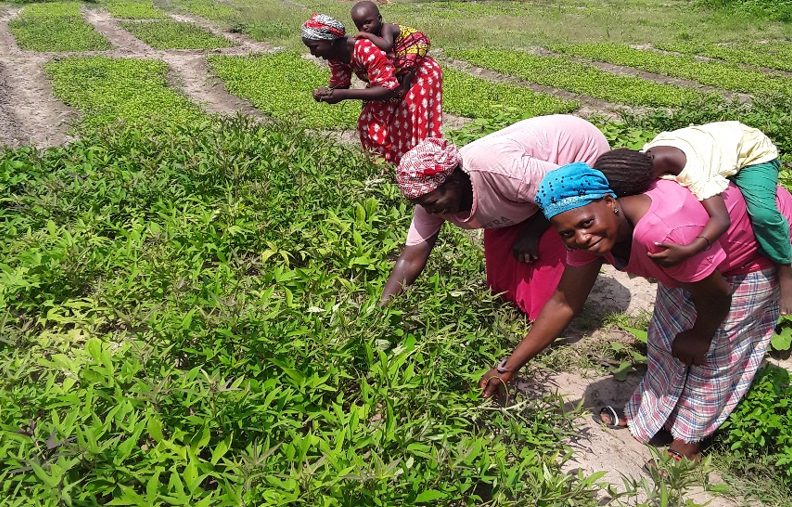Meet Amy. She is the president of her women’s collective in Ziguinchor, a town in southern Senegal. She and the other women in her collective produce fruit juices and cordials made from locally sourced products, such as ginger, tamarind and hibiscus.
Image: Amy showcasing her juice
Amy has always designed the labels on their products herself - but, in the past, every time she applied for legal sales authorisation, she was refused. The labels didn’t meet ‘the standard’, but no one ever explained to her what ‘the standard’ was.
“It was really frustrating,” says Amy. “We can’t get the authorisation so we can’t sell our products beyond the local market. But no one seemed to be able to tell me exactly what I needed to do in order to get the official sales authorisation.”
In March 2022, Amy took part in a training session on labelling and packaging with an expert consultant on sales authorisation. In this session, she learnt what must be included on food and drink labels (e.g. list of ingredients and nutritional values) and also about the most effective types of packaging for her products.
“I really enjoyed the training,” Amy says. “It was the first time I was able to ask questions and fully understand what I need to do. I used to feel bad because my colleagues would ask me, and as their president I should have been able to guide them. But now I know what to do, and I can help continue to expand our business.”
Context
This training session took place as part of our Welsh Government-funded COVID response project. In Senegal, project activities focused on rebuilding women’s businesses after the pandemic and making them more resilient. Read more stories from the wider project below:






